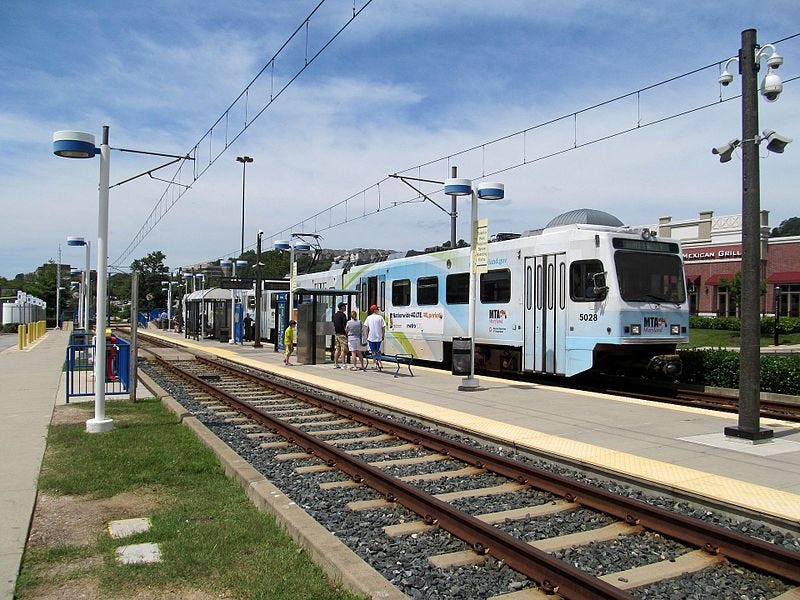Infrastructure Plan ‘Doesn’t Go as Far as Many Democrats Would Like to See It Go’
House Dems see their infrastructure bill as negotiating point with bipartisan Senate plan
House Democrats generally aren't entirely satisfied with the scaled-back, bipartisan infrastructure plan President Biden's agreed to with Senate Republicans, but they feel that their legislation could become a point of negotiation for a final package that can win broad support.
“Well, I don’t know exactly where we stand, but I do know this. There is a strong bipartisan support in the House for the bipartisan deal struck by the Senate. I know that. I’ve looked at the numbers, it’s a good deal. But it doesn’t go as far as many Democrats would like to see it go, and I'm included in those, because I do believe that we need to ensure that as this economy is stood back up, that this so-called care economy comes along with it,” said Rep. James Clyburn of South Carolina, the third-highest ranking Democrat in House leadership. “I have a lot of constituents who want to go back to work and they’ve got children that need to be taken care of. They’ve got parents and grandparents that are on their watch now, that so many nursing homes and other facilities, daycare facilities have gone out of business. So we need to make sure that we bring all of this along with this.
“You know, I’ve studied history all of my life, and we know that time after time after time, we've seen a recovery from depression, we’ve seen a recovery from recession leaving pockets behind, and these are the people we want to make sure don’t get left behind this time,” Clyburn added. “And the compromise bill that was agreed to in the Senate, if that’s the only thing that we do, it will leave a lot of people behind, and we don’t want to leave people behind. So it’s not necessarily linked, but it is a two-pronged attack on this problem.”
In the House, the Democrats' infrastructure bill is called the INVEST in America Act.
House Transportation & Infrastructure Committee Chairman Peter DeFazio (D-Ore) gave his perspective of the Senate compromise, and the challenges which lie ahead.

“Well, the Senate bipartisan deal is an outline, and it has good numbers. Except I find them deficient on rail, but they're within shouting distance. So I believe we could work out the spending levels in the bill, but there's no policy attached to their proposal,” DeFazio said. “You have to have policy to do a bill. And we also have to [have] policy in place before October 1.”
October 1 is the beginning of the next federal fiscal budget year.
“So, you know, I'm suggesting that substantial amounts of the policy in our bill should be, you know, negotiated by the White House and the Senate and the House to be part of that bipartisan proposal. And so, I'm actually encouraged by the movement over there,” DeFazio added. “It's substantially larger than what we saw out of [the Senate Environment and Public Works] and Commerce [committees]. And, of course, we've seen nothing out of Finance or Banking, because of [Sen] Pat Toomey’s [R-Pa] hatred of transit. So there is no transit title in the Senate. But the bipartisan group has a robust a number for transit, but no policy attached.”
In terms of having a conference committee work out differences between the House bill and the Senate compromise, DeFazio said that it's really a matter of time and a lack of policy written into the Senate bill.
“And I said, ‘Well, you know, it took my staff seven months to write the policy. I don't know how quickly you can write policy over there. So I would suggest that you look at our policies, and we adopt significant portions of those and perhaps some of what came out of [the Senate] Commerce [Committee], and some of which came out of [Environment and Public Works],’” he said.
Rep. Sharice Davids (D-Kan), noted that as her district stretches from urban, to suburban to rural settings, she sees the needs for improved infrastructure first-hand.
Davids, now in her second term as a House member, is vice chair of the Transportation & Infrastructure Committee.
“There are a lot of people in our country who have needed these kinds of infrastructure investments, whether we're talking about people who are feeling the urgency, because they're sitting in traffic for a really long time, they aren't able to catch a bus because the bus routes have been reduced, or are just not able to get access to clean drinking water,” Davids said. “You know, we're seeing rural communities are – have been hit really hard because of this pandemic. And, right now, the investments that we're making in all of these areas are exactly what this country has been asking for.
"It's one of the reasons that I fought to get on the T&I Committee, because if we want to thrive when we move forward, our grandchildren, our great grandchildren, we have to – we have got to get this done right now,” she added.



